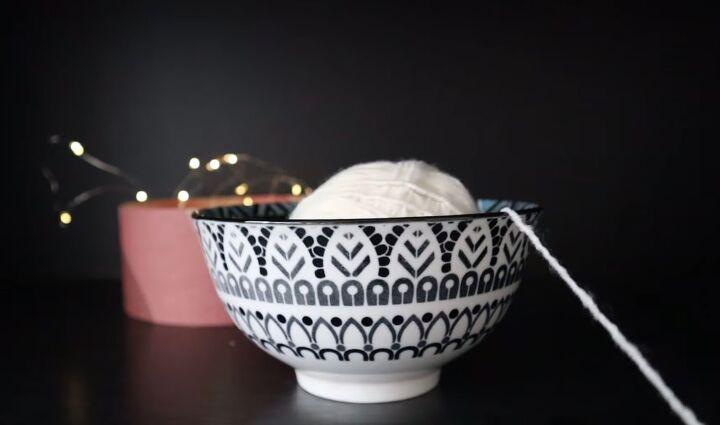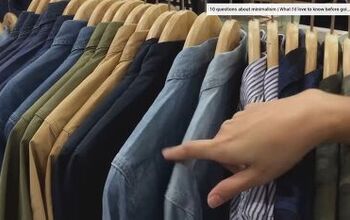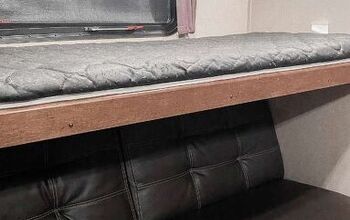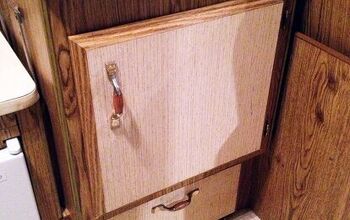How to Hobby Without Clutter

Being a minimalist and enjoying creative hobbies can be challenging because of the resulting hobby clutter. All the tools, materials, projects, and stuff can accumulate rapidly or slowly but steadily, and the result is the same – feeling overwhelmed.
Today, I want to share some tips on how to enjoy hobbies without cluttering your space. Everything is based on my experience; I will use my hobbies as an example.
I'm into crocheting, knitting, sewing, embroidery, drawing, and making paper collages. At the moment, I don't have a long-term home, so I have to keep all my projects and supplies under quite strict control. So, I have six tips for you, and I hope you will find them helpful.
1. Go old school
Fancy and modern supplies are very fun, but you can do completely without them in many situations. It's so much fun to find a creative purpose for some mundane things, mundane items you have at home, and use them for your hobbies.
For example, I use regular bowls for yarn instead of buying special-purpose yarn bowls. I don't have a yarn winder, so I do everything by hand, and for winding skeins into bowls, I use a chair. I also don't have special mats for blocking knitted items. I use regular bath towels for that.
If you don't have something for your hobby, don't rush to buy it, just look around your apartment and see what you can use instead. Being inventive is very exciting.
2. Prioritize
It took me a while to arrive at a point when I didn't have many projects in process at once. Even a half year ago, the situation was a bit different.
I think that I felt that very special rush of impatience to do everything and that anxiety that I wouldn't have enough time to do what I wanted to do or fear that I wouldn't have access to the needed materials. Of course, it's kind of an echo of the scarcity mentality.
So now I'm more disciplined in this way, allowing me to focus on one or at most two projects at once without over-cluttering my mind space. By prioritizing your projects, you invite more joy and ease in handling everything. Thus, you can deepen and improve your skills instead of just multiplying different projects.
3. Organize visibly
This is pretty important as I've seen quite a few crafters and artists that have gone too passionate with their stashes of supplies.
Impulse hobby buys are a thing, and sometimes they are even more difficult to tame than impulse buys of clothes or home decor.
That's where visible organization is so helpful because it helps you not to turn a blind eye to your hobby clutter. I always try to keep my supplies seen and very visible.
This trick also helps me feel inspired and motivated to create more, especially when I see that my stash is pretty small and very manageable. It's like cooking when too many ingredients in a recipe can be pretty demotivating.
4. Start cheap
Minimalism is not only about making the most of less stuff but also about living by the means that you have at the moment.
When I just learned to knit, I had my mom's old needles, and I randomly bought circular needles of just one size and knitted everything with them. I just wanted to make sure I loved the process. Now, I have much better needles, and I hope to get even more sometimes when I have this opportunity.
It's very important to start cheap when just testing the waters of a new hobby. Try to find something more affordable and as less intimidating as possible.
For beginner collages, buying cutting boards, X-Acto knives, and sometimes pricey vintage books is unnecessary. Just regular scissors and all types of scraps will do.
The trial period is sweet and exciting, so try to make it light without any serious strings attached. There's no such thing as failure in hobbies, so I advise you to buy expensive tools and supplies only when you are 100% sure that you will use them and, most importantly, you will be able to learn how to use them.
5. Do not compare yourself
This bitter prison of comparison crushes our hearts not only in our personal and professional lives but also in our hobby realm.
We humans often search for communities of like-minded people, and together with support, inspiration, and a sense of belonging, we can also feel inferior to others. This can relate to the skills we are meant to develop joyfully without any pressure and the tools and supplies.
There always will be someone who knows better and owns better. It's kind of inevitable, but this doesn't mean that we should throw ourselves into a fantasy race of acquiring more tools, materials, supplies, courses, patterns, just anything to have a feeling that you are keeping up with a crowd and that you belong to some certain group of people.
All these can potentially lead to clutter, disappointment, and sourness.
6. Give yourself the freedom to give up
I cannot stress enough the importance of one simple thing. You can always stop doing something if that will make you feel better. Experiment, rotate, repurpose, and recalibrate your hobbies however you want. Once, I gave up my serious beginnings in scrapbooking, but later on, I fell in love with collaging, which is practically the same.
I've recently sold the sewing machine because it just happened that we have to move and I physically cannot transport it at the moment because we don't have any final destination yet.
If you're done with something, don't feel guilty or down. Try to feel empowered to change and free space for something else that is more exciting for you now.
The only prescription for me is to have a thousand interests. Hobbies take away the tension of our everyday worries. They clear up the space in our minds and become safe harbors where we can always return for support and motivation.
Hobby clutter
Feel free to share your thoughts in the comments on whether you think the minimalist mindset can be applied to hobby clutter and how you're doing that.
What struggles have you encountered on this road? Share your tips for how you've dealt with those struggles.
























Comments
Join the conversation